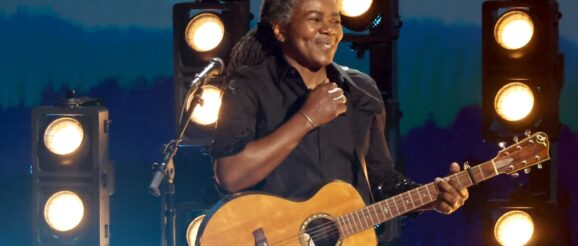National Recording Registry adds Tracy Chapman, Minecraft, Hamilton

The original cast recording of Hamilton, the score of the videogame Minecraft and a milestone 1970 album by Miles Davis are among the 25 latest additions to the National Recording Registry.
Created in 2000 by the Library of Congress to help bring attention to its preservation efforts, the registry now contains 675 titles. Other additions this year include albums by popular artists such as Elton John, Tracy Chapman, Mary J. Blige and Amy Winehouse, as well as a historic 1960 World Series broadcast, a recording from insult comedy legend Don Rickles, songs from Japanese American workers who processed sugar cane leaves on Hawaiian plantations, and popular singles in genres spanning folk, country, ranchera and R&B.
Another notable inclusion? The Microsoft Windows reboot chime from 1995. Composed by Brian Eno, the chime was almost twice as long as what Microsoft designers had originally envisioned. But it captured a sense of “welcome, hopefulness and progress” they wanted to convey to inexperienced computer users booting up Windows 95.
“These are the sounds of America – our wide-ranging history and culture. The National Recording Registry is our evolving nation’s playlist,” said Librarian of Congress Carla Hayden in a statement. “The Library of Congress is proud and honored to select these audio treasures worthy of preservation, including iconic music across a variety of genres, field recordings, sports history and even the sounds of our daily lives with technology.”
The oldest recording on this year’s list is from 1913. “Aloha ‘Oe” was composed by Princess Lili’uokalani (who later became Queen of Hawai’i). The song had been beloved in Hawai’i for decades before being set to wax by the Hawaiian Quintette.

The newest recording is 2015’s Broadway cast album of Hamilton. Creator Lin-Manuel Miranda noted its inclusion coincides with the show’s 10th anniversary.
“I think the National Recording Registry is an artistic version of a nation’s conversation with itself,” he said in a statement. “Every piece of art that is made is both deemed timeless by the Library of Congress and also a product of its time. To listen to these recordings, to go back as far as the turn of the century, to the beginning of recorded sound to the present is to hear points in a timeline, to time travel. I feel incredibly honored that Hamilton is a point in that timeline.”
Edited for radio and the web by Meghan Sullivan, produced for radio by Chloee Weiner.



